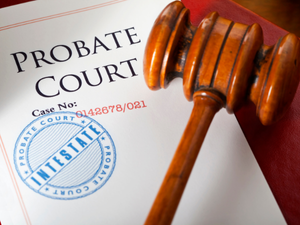Formal Probate vs. Informal Probate in Colorado: What’s the Difference?
If you’re navigating the loss of a loved one in Colorado and you’ve heard the term probate, you’re not alone in wondering what exactly that means — or how complicated it’s going to get.
One of the first decisions families face when a probate estate needs to be opened is whether to go through informal or formal probate. These terms sound technical, but the difference between them can have a big impact on how long the process takes, how much it costs, and how much court oversight is involved.
Let’s break down what each type of probate means, when each is used, and how to figure out which one applies to your situation.
What Is Probate, Anyway?
Probate is the legal process of settling someone’s estate after they die. That includes validating the will (if there is one), appointing a personal representative (executor), paying off debts, and legally transferring assets to heirs or beneficiaries.
In Colorado, probate is handled by the district court in the county where the deceased person lived. The process is designed to ensure everything is handled properly, but not every estate goes through the same type of probate.
Informal Probate: The Most Common and Simplest Route
Informal probate is the most commonly used probate process in Colorado. It’s designed for situations where:
- There is a valid will
- No one is contesting the will or disputing the heirs
- The personal representative is clearly named and willing to serve
- There are no major legal questions or red flags about the estate
In informal probate, the court’s role is largely administrative. The judge does not oversee every step. Instead, the personal representative handles the estate with minimal court involvement — as long as everything is done correctly.
Benefits of informal probate:
- Faster and less expensive
- Less paperwork and fewer court hearings
- More privacy, less stress
- Often completed within 6–12 months
This is usually the best-case scenario for families. But not all estates qualify.
Formal Probate: More Complexity, More Oversight
Formal probate is required when there are complications or disputes that need a judge’s involvement. This includes situations where:
- The validity of the will is in question
- There’s no will and disagreement over who should inherit
- There are disputes about who should be appointed as personal representative
- Creditors or heirs challenge the distribution of assets
- A family member is suspected of misconduct or undue influence
In formal probate, a judge actively oversees the case. Court hearings may be required. The personal representative’s actions might be subject to more scrutiny. This process provides protection — especially when there’s potential for conflict — but it also means:
- More time (often 12+ months)
- More legal fees
- More paperwork and formal procedures
- More stress for the personal representative
It’s important to understand that formal probate is not a punishment — it’s a tool for resolving contested or unclear estates fairly.
What If There’s No Will at All?
When someone dies without a will in Colorado (called intestate), their estate will still go through probate. Whether that probate is formal or informal depends on the level of agreement among the heirs and whether anyone contests the process.
Even without a will, informal probate is still possible, but if there’s a dispute over who should inherit or manage the estate, formal probate may be required.
Small Estates May Avoid Probate Entirely
If the value of the deceased person’s estate is under $86,000 (as of 2025) and there’s no real estate involved, you might not need to open a probate case at all. Colorado allows for a simplified process using a Small Estate Affidavit, which can be used to collect and distribute assets without going to court.
This is a valuable option for low-asset estates — and another reason why working with a probate attorney early on can save time and cost.
How to Know Which Probate Process Applies to You
Choosing between formal and informal probate isn’t always a choice. It depends on the facts of the case. But understanding the distinction can help you manage expectations and avoid surprises.
Here’s how a probate attorney can help:
- Determine eligibility for informal probate
- File the correct documents with the right court
- Navigate disputes, creditor claims, and family concerns
- Protect the personal representative from liability
- Keep the process moving and reduce delays
Need Help Navigating Probate in Colorado?
If your loved one’s estate is uncontested and you’re looking for a straightforward, legally sound way to manage the process, we’re here to help. At Lester Law, we work with Colorado families to handle formal or informal uncontested probate cases with clarity, compassion, and efficiency — so you can move forward with confidence.
If your case involves disputes, family conflict, or contested issues, we’ve got you covered in another way. Check out our Best in Class Guide to find highly qualified attorneys who specialize in contested probate litigation.
Not sure what type of case you have? Schedule a call with us today to find out which type of probate applies and how to move forward. We’ll help you protect your loved one’s legacy — and your peace of mind.
———–
This website includes information about legal issues. Such materials are for informational purposes only and may not reflect the most current legal developments. These informational materials are not intended, and should not be taken, as legal advice on any particular set of facts or circumstances. You should contact an attorney for advice on your specific legal problems.




